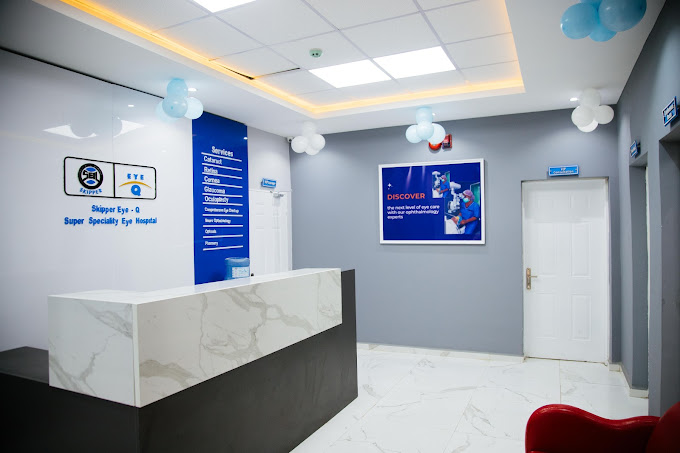Cataracts are a common eye condition that affects millions of people worldwide, including those in Nigeria. As the population ages, the prevalence of cataracts is expected to increase, making it an important public health issue. Fortunately, advances in technology and surgical techniques have made cataract surgery safer and more effective than ever before. One such advancement is femtosecond laser cataract surgery, which offers several potential benefits over traditional cataract surgery. But who can get femtosecond laser cataract surgery in Nigeria?
First, it’s important to understand what femtosecond laser cataract surgery is, how it works, and how it differs from traditional cataract surgery. In this article, we will discuss all the answers to your questions.
What is Femtosecond Laser Cataract Surgery?
Femtosecond laser cataract surgery is a type of laser-assisted cataract surgery that uses a femtosecond laser to create incisions and break up the cloudy lens in the eye. It is also known as bladeless cataract surgery.
During the procedure, the surgeon uses a femtosecond laser to create precise incisions in the cornea, lens capsule, and lens nucleus. The laser energy breaks up the cloudy lens into small pieces, which are then removed using suction.
Femtosecond laser cataract surgery is often preferred over traditional cataract surgery because it offers greater precision and accuracy. The laser can create a perfectly round and centered opening in the lens capsule, which is important for the accurate positioning of an artificial lens implant.
How does it work?
During traditional cataract surgery, the surgeon uses a manual or ultrasound instrument to create incisions in the eye and break up the cloudy lens for removal. In femtosecond laser cataract surgery, a laser is used to create precise incisions in the cornea and lens capsule, as well as to fragment the cloudy lens into small pieces for easier removal. This technique offers several potential advantages, including greater precision, less trauma to the eye, and faster recovery time.
Procedure
The procedure is typically done on an outpatient basis and takes about 10-15 minutes per eye. Most patients experience improved vision within a few days after the surgery and can resume normal activities within a week.
Femtosecond laser cataract surgery is generally considered safe and effective, but like any surgery, it does carry some risks, such as infection, bleeding, and vision loss. It’s important to talk to your eye doctor about the risks and benefits of the procedure to determine if it’s right for you.
Cost
The Cost of the surgery depends on several factors such as:
- Location of the hospital
- Condition of the patient
- Aftercare packages
- Duration of stay at the hospital
While cataract surgery at a qualified eye hospital can cost anywhere around 120,000 Naira and 1.5 Million in Nigeria, however, the average cost is between 180,000 Naira to 1.5 Million in most major cities.
Who are the Eligible Candidates for Surgery in Nigeria?
In Nigeria, femtosecond laser cataract surgery is available to those who are good candidates for the procedure. To be considered for femtosecond laser cataract surgery, a patient must have a significant cataract that is affecting their vision and be in good overall health. The procedure may not be suitable for patients with certain medical conditions or eye problems, such as glaucoma or macular degeneration.
Patients who are looking for femtosecond laser cataract surgery in Nigeria should consult with an experienced ophthalmologist who has the necessary expertise and equipment to perform the procedure. It’s important to choose a reputable provider who can perform a thorough evaluation and discuss the risks and benefits of the procedure with the patient. Patients should also ask about the cost of the procedure, as femtosecond laser cataract surgery may be more expensive than traditional cataract surgery.
In addition to being a good candidate for the procedure, patients should have realistic expectations about the outcomes of femtosecond laser cataract surgery. While the procedure offers several potential benefits, including improved vision and faster recovery time, it is not a guaranteed solution for all vision problems. Some patients may still need to wear glasses or contact lenses after the procedure to achieve their best possible vision.
The Final word:
Overall, femtosecond laser cataract surgery is a safe and effective option for those who are good candidates for the procedure. In Nigeria, patients can access this advanced surgical technique by consulting with an experienced ophthalmologist who can provide a thorough evaluation and discuss the risks and benefits of the procedure. By taking these steps, patients can make informed decisions about their eye care and achieve better vision outcomes.






